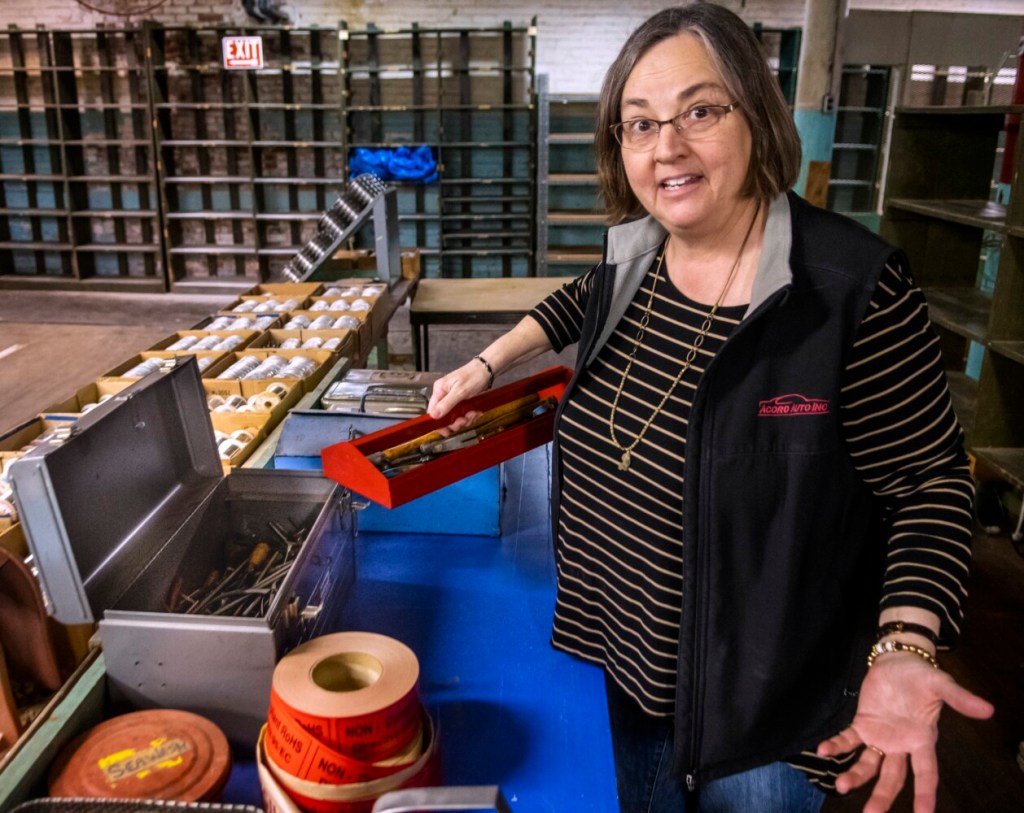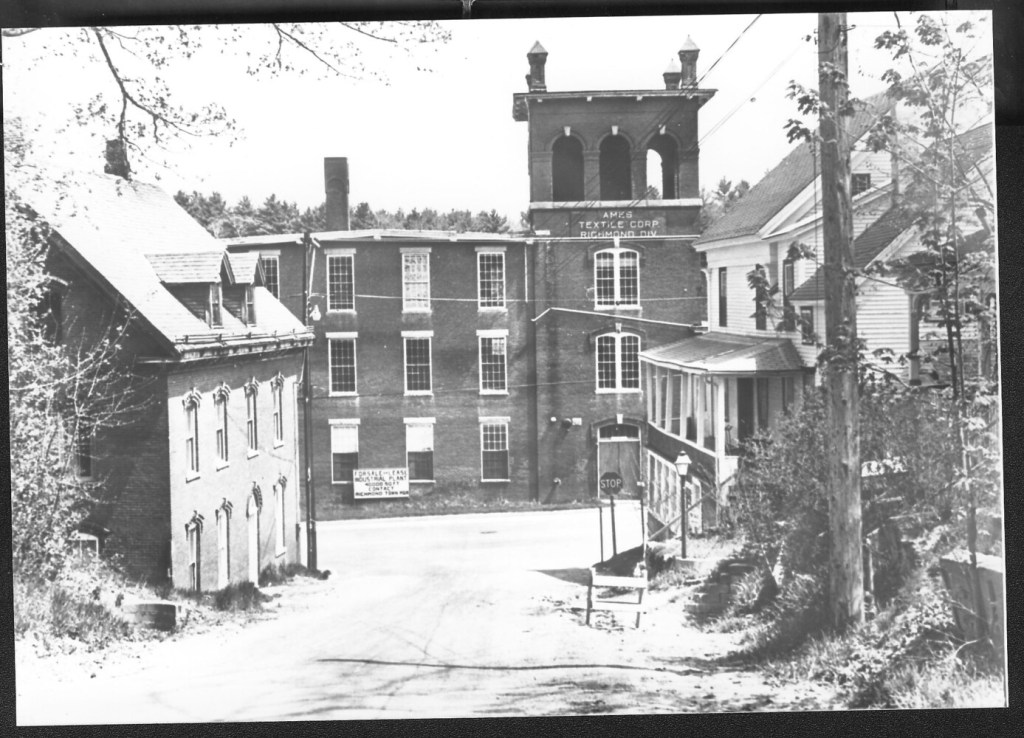RICHMOND — As a way to bring more business and creators to the area, Chris Acord is hoping to sell what was left inside the 20,000 square-foot space in the Ames Mill.
 The room only occupies around half of the square footage of the mill, also known as the Southard Mill.
The room only occupies around half of the square footage of the mill, also known as the Southard Mill.
Acord and his wife bought the building about four years ago and have since renovated the rooms. But the one company that occupied the space, the Pennsylvania-based Strube, has gone out of business and left everything with the Acords. The company in the space before was Richmond Contract Manufacturing Co.
“They abandoned the business really,” he said of Strube. “They left it all on us to get rid of.”
Acord said they are selling shelves, chairs, equipment, tools and more. He said the prices will range from $1 to around $500, but will be cash only.
Wood flooring, metal shelving, gears and wheels will be available, too.
“I think it will appeal to people that are crafters, or steam punk people, there is antique stuff, old equipment, a lot of cool stuff,” Acord said. “It’s neat to walk through and look at.”
Before the Acords owned the mill, it belonged to the town of Richmond.

Maine Gov. Edmund Muskie visited the Ames Mill in Richmond in August 1958. Photo courtesy of Richmond Historical & Cultural Society
Richmond Town Historian Jay Robbins said the mill was built by T.J. Southard in 1881 after the building in its place burned down. At the time, Richmond was a “well-developed” shoe manufacturing town. The building the mill replaced was solely used to make shoes.
Throughout the years, the mill changed its course on what was being made inside.
It was originally built to be a cotton mill and became a yarn mill in 1895 after being sold to Willie & Sears.
In 1901, Robbins said, the building was bought by Kennebec Spinning Mill Co. and employed 160 people to make worsted cotton and silk. Soon thereafter, it became a Richmond Worsted Co. factory in October 1921, then handing it off to Ames Worsted Co.
“When Ames Worsted Co. went out of business in the 1960s, they gave the building to the town of Richmond,” Robbins said.
That’s when the Richmond Economic Development Corporation was formed to find businesses to set up in the building. The “offspring,” as Robbins called it, Richmond Contract Manufacturing Co. took over and became one of “Richmond’s most valuable employees.”
Robbins recalled the building as being part of the national Register of Historic Places and because of that, until the building was privately owned, no changes could be made to the mill.
Once it was privately owned, the windows could be replaced.
Robbins said around 75-100 artists from across the state came in and used windows from the mill in their art project. He said to this day, there is one hung in the Richmond Town Hall. The event was called “Taking Panes” and drew around 800-1000 people in 2008.
Acord said there are artists that occupy the mill, still. He rents to artist, businesses, a reiki studio and more.
The sale will take place Saturday and Sunday from 9 a.m. to 3 p.m.
Send questions/comments to the editors.













